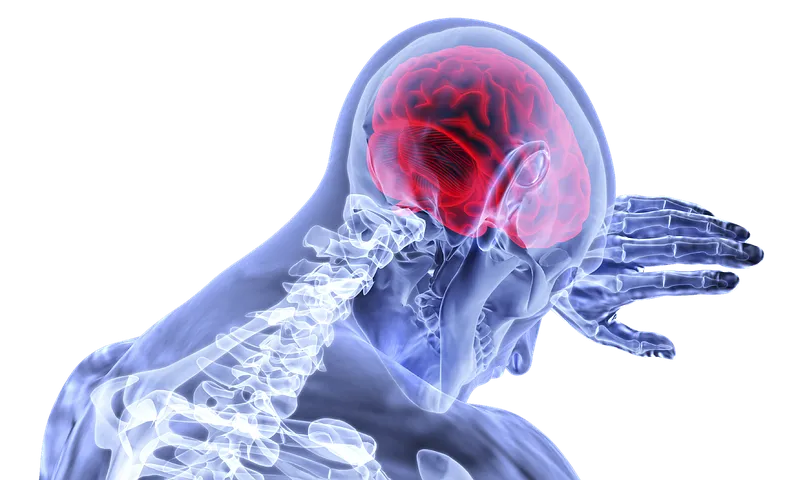Your brain is the control system of all the activities that occur in your body. The brain is your most important organ. It is made of billions of cells that collectively control everything your body does, however, most people have got negative habits that are harmful to their brains. Many of these habits could have long term and possibly fatal consequences. In this article, 4 bad habits that can cause damage to the brain will be revealed and you should do your possible best to get rid of them.
Covering your head during sleep: Research shows that covering your head during sleep can cause brain damage. Studies show that up to 23% of people who cover their head during sleep have a higher risk of Dementia or possibly Alzheimers. These conditions are a results of lack of enough oxygen to the brain and keeping your head free is a useful way of getting out of this issue. It is also important to understand that when you cover your head during sleep, the CO2 doesn't have space to go out which leads to it being inhaled. So, make sure you don't cover your head during sleep.
Chronic lack of sleep:Research has shown that chronic lack of sleep puts people at the risk of Alzheimers disease and other neurological disorders, also, a continues lack of sleep affects memory too. This is because in your sleep mechanisms are hard at work eliminating toxins and By-products that accumulate during the day. Sleep clears the brain from the day's work. A lack of sleep means this mechanisms cannot get effectively activated and therefore fails to clear your brain from these harmful toxic substances. If these toxins and by-products are not eliminated, they can start to accumulate in your brain and damage it. So, what's the solution? Get between 7 to 8 hours of quality and undisputed sleep every night.
- Dehydration: While this may be a common knowledge but most people don't practice regular intake of water. Your body is made-up of about 70% or 2/3 of water. Water plays an important role in your daily bodily functions. This is the reason why dehydration can lead to lots of problems such as: kidney stones, migraines and constipation. It can also affect your mood and overall brain functions. Some symptoms to dehydration are: proneness to irritability, anxiety and fatigue. Understand that a large part of your brain is water and without enough water your brain actually shrinks in volume. The shrinkage is what causes dehydration headache. According to a study, even mild and temporary dehydration can impact your brain function which will affect your mood through out the day,this means you are not living up to who you could be because of your mental performance. It is also important to know that cold water is absorbed 20% faster than room temperature water.
- Chronic stress: There are two types of stress you need to know; the first is acute stress and the second is chronic stress. Understand that not all stress are bad for you. Acute stress is a quick reaction to immediate threat which is commonly known as fight or flight response. Once the fight or flight response is over, you return to normal with no long term effects or damage. However, cortisol from chronic stress stays in your system all day long. Excess cortisol in your system can lead to lots of physical problems like; weight gain, digestive issues, hormone imbalance, cancer, diabetes, and more. Chronic stress takes a toll on adrenal glands making you always tired. When stress becomes chronic, it changes your brain's function and structure down to the level of your DNA. You don't know these are happening but you will notice its effect eventually.That's why it is so important for you to manage your state throughout the day. You might not be able to control everything out there, but you can control the meaning you give it.
- Lack of mental stimulation and exercise: There is a truth in the saying, " You either use it or lose it." Study shows that mental decline is not due to aging. People who live a stimulating life are more likely to be free of dementia conditions like Alzheimer's disease. The more active your brain is, the more active your memory. To avoid inactive memory, here are some recommendations:
- Read more to keep yourself educated: read some topics you may not have considered before, constantly educating yourself, stimulating your brain and growing.
*stay socially active: don't constantly isolate yourself. When you associate and engage with people, part of your brain is being activated and stimulated which you cannot get from isolation. So make sure you go out and network, join groups and interact.
- Start an online course or in-person class
Constantly challenge yourself everyday to do something new.
- Exposure to loud noise: For those expecially who live in the city, your ears are constantly exposed to a lots of loud noise. These could be cars and construction, also if you frequently use the earphone blasting your favourite songs, you may want to stop doing this. It only takes about 30 minutes of listening to loud music to cause damage to your hearing. Scientists have proven that hearing loss is inevitably linked to cognitive decline. Hearing loss puts you at a great risk of losing brain tissue. As an adult, it also increases your risk of Alzheimers. If you must use earpiece, it shouldn't be plugged in regularly.
